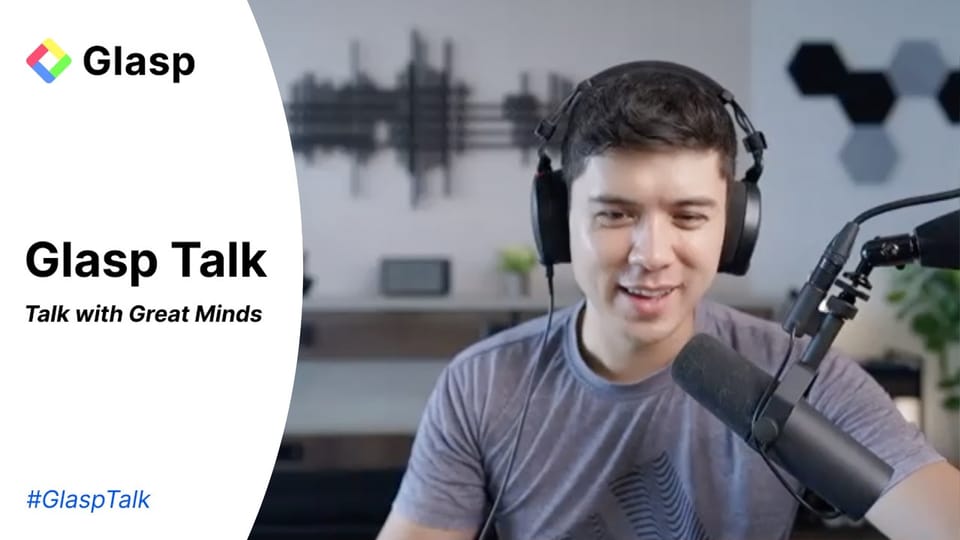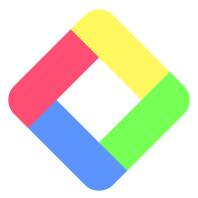The Secrets to Mastering Productivity and Overcoming Procrastination | Mike Dee | Glasp Talk #6

This is the sixth session of Glasp Talk!
Glasp Talk delves deep into intimate interviews with luminaries from various fields, unraveling their genuine emotions, experiences, and the stories that lie behind them.
Today's guest is Mike Dee, a globally recognized expert in personal productivity. Mike has more than 1 million subscribers on YouTube and shares innovative approaches to hacking productivity, mastering the art of overcoming procrastination and employing speed learning strategies.
In this interview, Mike shares his journey from starting a YouTube channel as a university project to becoming a renowned productivity coach. He discusses the importance of self-education and networking, explaining his "knowledge bank" system for retaining valuable information. Mike also talks about his two businesses: his personal development productivity training and PlayStack, which helps grow YouTube channels for businesses.
Read the summary:

Transcripts
Kazuki: Welcome back to Glasp Talk, and today we are excited to have Mike D, a globally recognized expert in personal productivity. Mike has more than one million subscribers on YouTube and shares innovative approaches to hacking productivity, mastering the art of overcoming procrastination and employing speed learning strategies. So, whether you are looking to revamp your daily routine or transform your entire approach to work and learning, Mike's insights are invaluable. So, let's dive into the mind of the man who teaches us how to do more, smarter, and with greater joy. Mike, welcome to Glasp Talk.
Mike: Thank you so much for having me. I'm looking forward to it.
Kazuki: Thank you. So yeah, first of all, some of our audience might not know you yet, even if you have one million subscribers. Could you briefly introduce yourself, what you do, and your background?
Mike: In a nutshell, I do two things. I run two businesses. The first business is a personal development productivity training business, and that's where the YouTube channel with a million subscribers comes in as our main marketing funnel. We help people live healthier, happier, wealthier lives. The second business is I'm the CEO of Playstack, and we grow YouTube channels for businesses. I co-founded that about two years ago, and it's been growing quite nicely this year. Those are the two primary things that I focus on.
Kazuki: Love it, thank you. And also, you started Project Elon, right?
Mike: Yes, I started this company in 2016. When I created the YouTube channel, I was like, okay, what name can I put? At the time, it was just a YouTube channel, and I didn't think it would turn into a business. I had Elon Musk's biography on my desk, so I thought of Project Elon because it was available on all platforms. I stuck with that name until 2021, when I changed it to my own personal name, Mike D, to make it more of a personal brand.
Kazuki: Cool, and why did you decide to start the YouTube channel initially?
Mike: It was totally by chance. In 2016, I had just started university and wanted to try some projects. I didn't think of them as business projects; I was just trying video editing. I found some other YouTube channels in the motivational space growing quickly, so I decided to make similar videos but better in every aspect. Within three months, my first video popped off, and in six months, I was earning a full-time salary. It all happened relatively quickly.
Kei: So you learned something, you had motivation, and you improved yourself better than others?
Mike: Exactly. But I should mention that when I was in high school and for most of my life, I was very lazy, unmotivated, and procrastinated a lot. My grades were average at best. It wasn't until I went traveling to Southeast Asia and met incredibly successful people that I realized I was living with self-limiting beliefs. Meeting these people inspired me to start the YouTube channel to help others become more motivated and driven.
Kazuki: And when you published that first video that got millions of views, did your channel grow linearly or exponentially?
Mike: At the beginning, it was exponential. It started slowly, but after one video took off, the channel grew exponentially. After a few weeks, it flatlined at around 20,000 views per day and stayed at that level for a few years. The initial growth was exponential.
Kazuki: Looking back now, do you know why that happened and have you tried anything different?
Mike: There are a few reasons. Firstly, there was a gap in the market where the demand was high but the supply was low. Secondly, I optimized for SEO using tools like VidIQ and TubeBuddy. I also reverse-engineered popular videos from competitors to understand why they were successful and made my videos better in every aspect.
Kazuki: Is that how you get ideas for your videos, or do you have other methods?
Mike: That still works today, but I also get ideas from networking, meeting interesting and inspirational people, and listening to podcasts. I have a knowledge bank in Notion where I store ideas and concepts, which I review regularly to cement them into my long-term memory.
Kei: Interesting. How do you keep track of these ideas?
Mike: I have a knowledge bank in Notion where I categorize ideas into different topics like psychology, business, economy, etc. I use active recall and spaced repetition to review these ideas regularly, ensuring they stay in my long-term memory.
Kei: That's fascinating. How do you think AI will change human learning?
Mike: AI is changing every industry, including learning. For example, ChatGPT has become incredibly good at writing scripts and generating ideas. The barrier to entry for becoming a creator is getting lower, and AI can help us with ideation, improving sentences, and overcoming writer's block. I'm optimistic about AI in the short and medium term, but the long-term implications are uncertain.
Kei: We're talking to you right now, but maybe in the future, we'll be talking to an AI version of you. How do you think AI can assist human learning?
Mike: It's important to have an AI-first mindset. Instead of asking questions on Chrome or YouTube, I now use ChatGPT for answers. People using AI will have an advantage, so it's crucial to integrate AI into our daily lives and stay on top of the learning curve to avoid being left behind.
Kazuki: That makes sense. We're shifting from searching to asking AI for answers. Before we wrap up, what's your favorite quote or motto for your personal life?
Mike: I like the idea of having four buckets: health, wealth, people, and happiness. It's essential to spend time every day on each of these to keep your life balanced. Also, one of my favorite quotes is, "You are the average of the five people you spend the most time with." It ensures that the people around me inspire and support me while maintaining values like integrity.
Kazuki: Thank you so much for sharing your insights and experiences. It was a great talk.
Mike: Thank you for having me. I appreciate it.
Kei: Thank you for joining us today.

